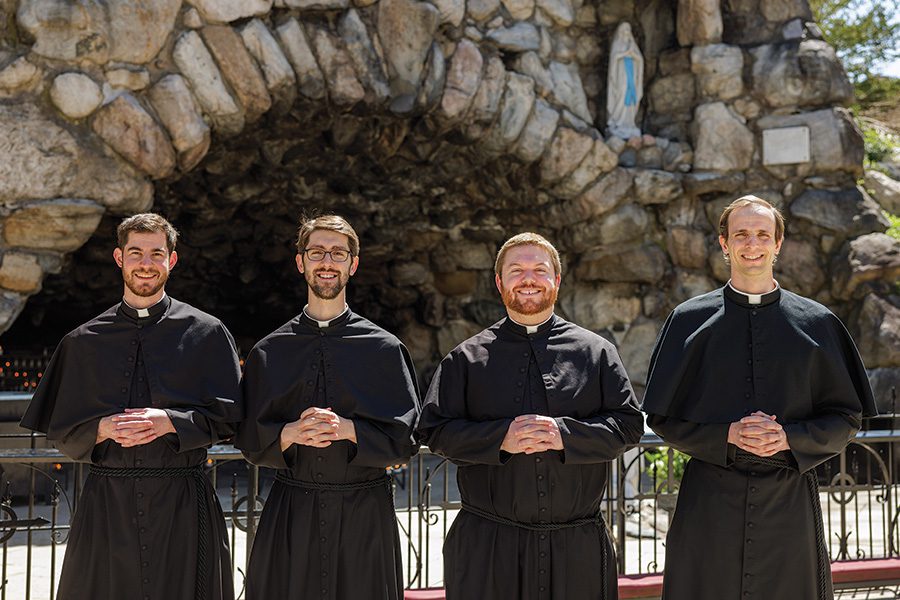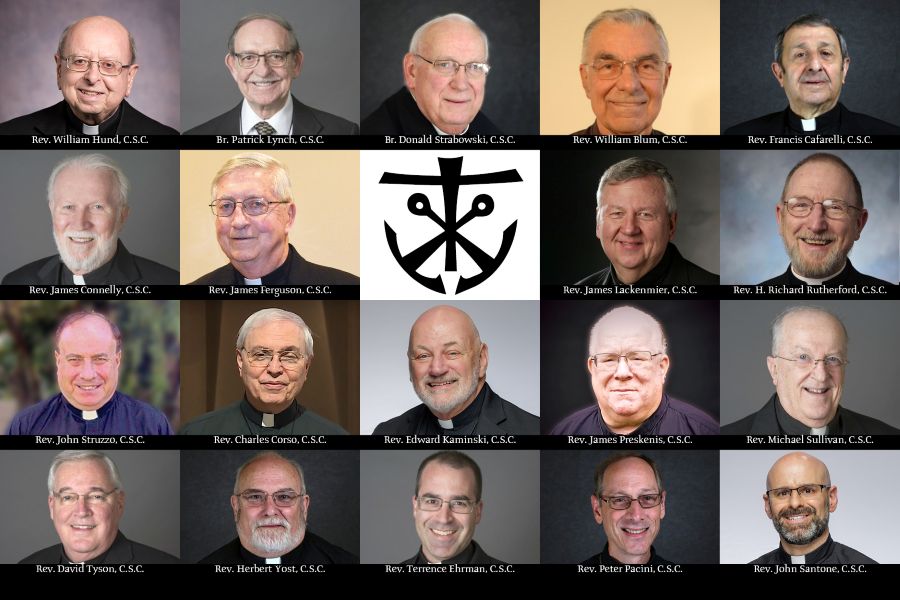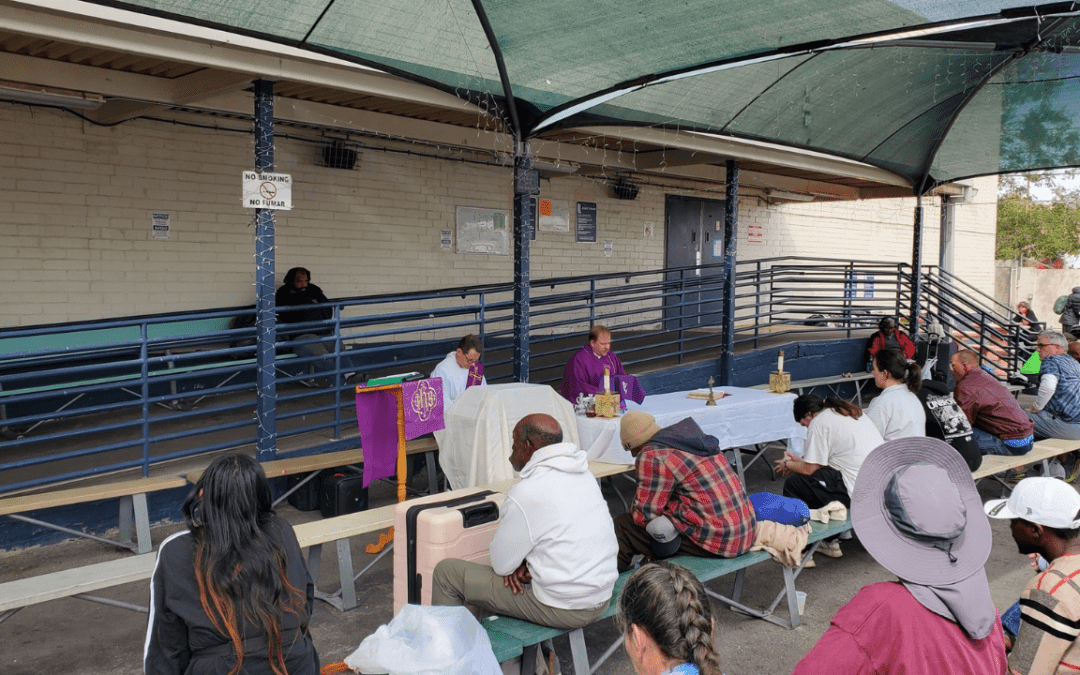The Church celebrates Saint Francis of Assisi on October 4. During his life, Saint Francis experienced a profound conversion, from wealthy man to beggar, from selfish pursuits to servant of the poor, modeling for humanity that God’s love arises from the beauty of the earth and in every human being.
One particular story in the life of Saint Francis captures my attention. As was common at the time, he was repulsed by lepers and shunned people suffering from such a disease. Yet, one day he kissed a leper, and in doing so realized the man was Christ Jesus. From the moment of that encounter, what had disgusted him became a source of faith. Fear became love, and he began to view people differently, with attentiveness and compassion.
Stories vary about Francis kissing a leper and letting go of his revulsion. (Learn more about Francis and the leper.) However, I want to break open the experience of the kiss as a metaphor for our own spiritual lives, for our surrender to Divine Love. I am not a scholar of Saint Francis, but I am intrigued about the kiss as a mystical experience for him that speaks to us today, whatever our vocation or way of life. Francis’ kiss is more than a kiss. It is a gift of God that draws Francis to accept people, no matter their illness or status in life.
Francis’ decision to kiss the leper changed his perspective on faith in Jesus Christ and service among suffering humanity. The kiss broke down the walls that kept him from valuing Jesus’ healing touch. In breaking through his deep aversion, Francis became an instrument of divine action toward the sick, the weary, and the outcast. All of life opened to Francis in the simple gesture of the kiss, not just the privileged life he had protected.
Francis had stepped away from his family inheritance, an inheritance of both wealth and attitudes and in some way he seemed to find his past repellent. The kiss discloses a moment of reconciliation; it heals his past and invigorates his vocation toward living his faith in the world. The leper symbolizes all in Francis’ life that he had feared, regretted, and found loathsome. In many ways, the leper healed him.
The kiss revealed a new intimacy in his search for God, a visible sign that Francis was serious about living the life God had for him. The kiss freed him to move forward on a path that was truly and irrevocably his to walk. The kiss was a holy moment, a pivotal signpost of God’s bountiful grace.
The kiss removed blinders from Francis’ perspective on people surviving illness, disease, and poverty. The intimate union of the kiss reveals Francis’ realization that all humanity is beautiful, and all people are in the hands of Divine care and purpose. The kiss extinguished his judgments about others and allowed Francis to understand the sheer gift of God’s love for every human person. Francis willingly turned from his old ways and embraced all creation as his brother and his sister, calling even death his sister.
The kiss also tells us that Francis desired not to change or heal the leper, but to simply engage him in a relationship and offer him true acceptance. This models the Christian life. We are not called to change people, to fix them, or to wish they were different. Our role is not to be “do-gooders,” but to console others in the message of God’s love for them.
I saw this reality some years ago when ministering among people who live outside. The first step in building a relationship was to accept their situation, not to try to change them, fix their problems, or give them answers to questions they did not have. True acceptance was the most difficult thing to offer, yet that acceptance was the only path to trust and genuine change. Francis’ kiss created a relationship in this way, enabling him to engage vulnerable people and all that was unresolved within himself as well. God’s fidelity was the remedy for both the leper and Francis.
The story of Francis’ kiss reveals our own wounds. We are often repelled by people’s pain and differences. We look away from the illness of others because we fear that same pain may someday be ours. We fear the potential loss of health and shelter, of our independence, our status; loss that would cause us to sacrifice everything, including all that we feel entitled to possess. We fear the labels other people would place upon us, labels that make us objects to others.
I know my own resistance toward people who have suffered great loss. Shortly after ordination, I was called to a nursing home to visit a man completely paralyzed from a motorcycle accident. I entered the room and stood by his bedside. We were the same age, and as he spoke to me, his speech hesitant and slow, I was filled with fear. Finally, he said, “I am the one who was in an accident, why are you so afraid?” His question pierced my soul and broke me open. My resistance, my fear for myself, kept me from seeing him as a child of God. He freed me in ways I am still seeing. This encounter still draws me to God. That man’s pain, in fact, kissed me.
I remember the first person I met who was living with AIDS in the mid-1980s. In those early years, we simply did not know the social consequences of the disease. I sat with him in my office and offered him a can of Diet Pepsi. Between sips, he would place the can on the table next to his chair. I kept staring at it, and he could tell I was worried the can might be a contagion. After he left, I didn’t know how to discard the can; it was empty, but I was filled with fear and anxiety. I was worried about my own life and not the life of this man who was dying. I feared my own losses. Those fears blinded me to the dignity of the man who was struggling to survive the disease.
Francis found God by confronting his own resistance to powerless people. His surrender to a leper initiated his deeper faith, a new fidelity toward God. Francis found freedom to live and act from God’s initiative, from God’s mercy and tenderness. Poverty, simplicity, and deep trust in God became his life after his awakening.
Francis’ reluctance to surrender to faith may ring true in our lives. God may be asking us to expose our deep resistance to faith with a new loving trust. Francis’ kiss changed the course of his life and models changes for our own.
Saint Francis of Assisi died on October 3, 1226, and was canonized in 1229.
_______________________________________________________________________________________________________
About:
Rev. Ronald Patrick Raab, C.S.C., serves as religious superior of Holy Cross House, our retirement and medical facility at Notre Dame, Indiana. He is an award-winning author, blogger, and visual artist. Learn more at ronaldraab.com
Artwork:
Fr. Ron created this image of Saint Francis a few months ago. Fr. Ron’s art has been published in parishes and dioceses throughout the world.
Published August 2024




